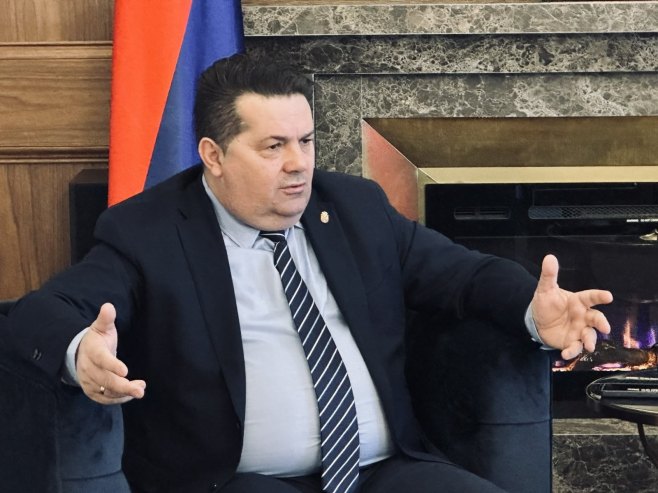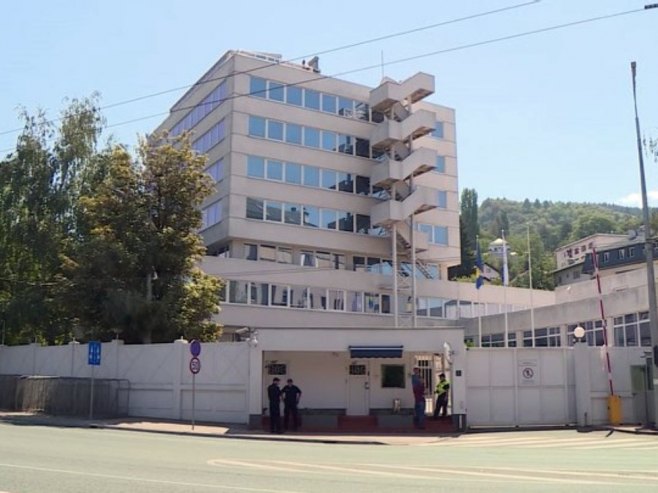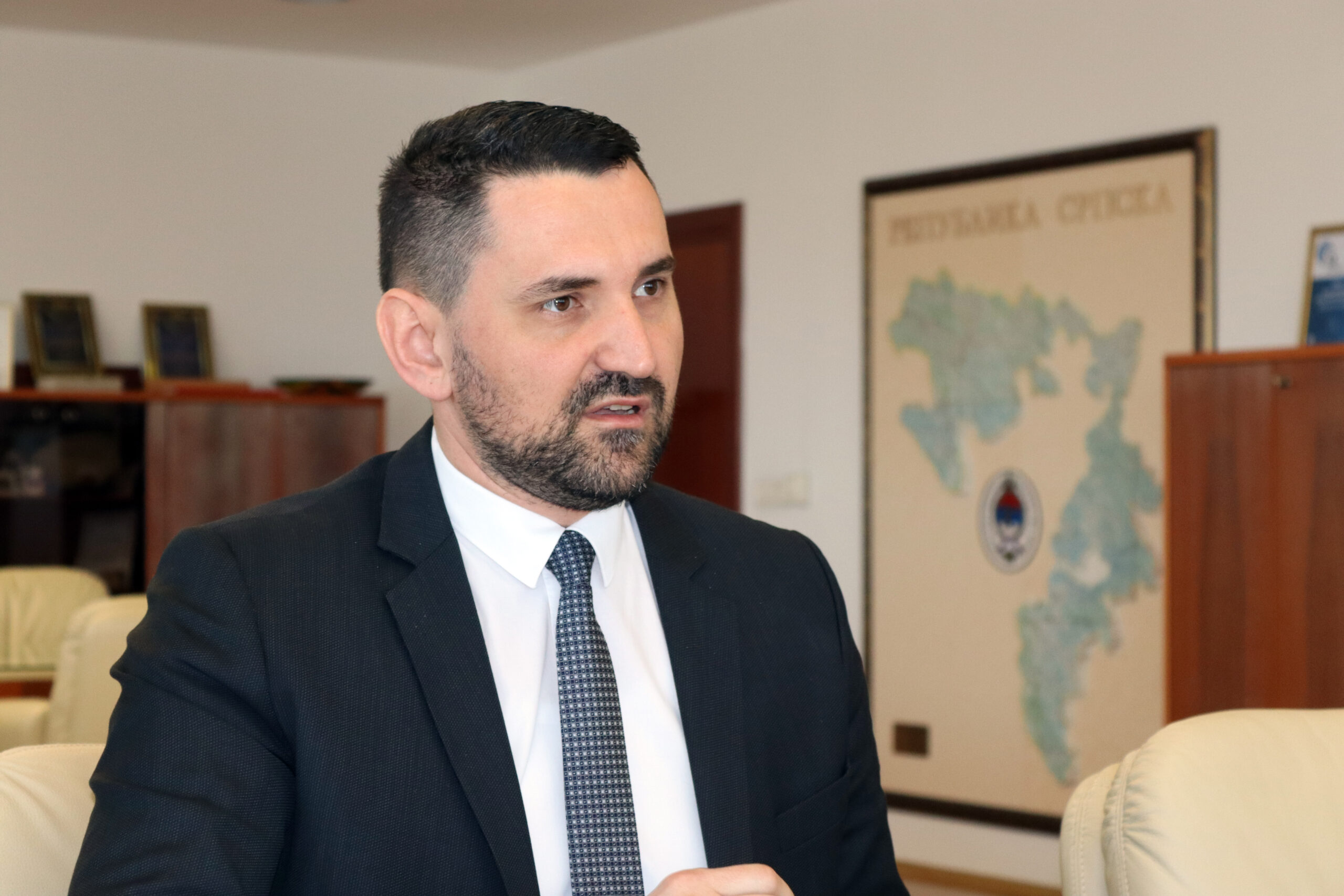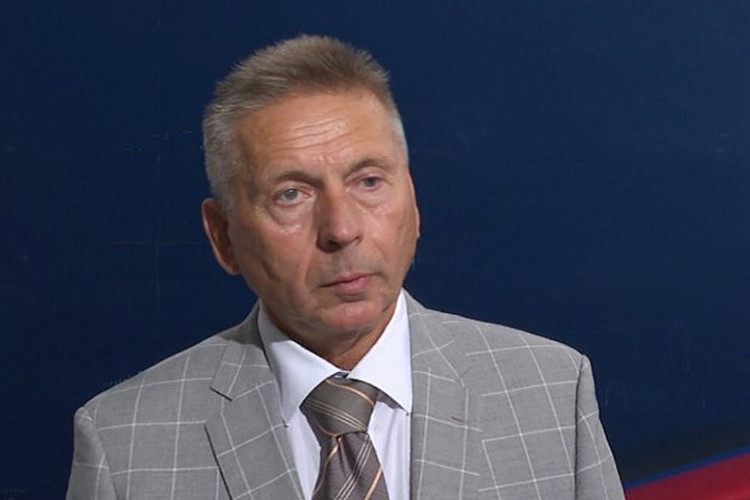The Speaker of the National Assembly of Republika Srpska, Nenad Stevandić, stated today that the political crisis in Bosnia and Herzegovina has escalated into a constitutional crisis. He emphasized that the leadership of Republika Srpska does not seek any conflicts or war but rather a resolution to the constitutional crisis. He also assured that Banja Luka will do everything necessary to preserve Republika Srpska, peace, and the Dayton Agreement.
“In Bosnia and Herzegovina, we have moved from a political crisis to a constitutional crisis. This is now a crisis concerning the constitution and jurisdiction—both the Constitution of Republika Srpska and the (Bosnia and Herzegovina) Constitution, which has been illegally altered by High Representative Christian Schmidt. Whether it was for a single day, when he formed the government in the Federation, or through his assumption of legislative powers—because, constitutionally, he is not a legislator. Yet, he created a law that has opened Pandora’s box in Bosnia and Herzegovina,” Stevandić said while appearing on the Uranak program on TV K1.
He pointed out that the accusations against him, Republika Srpska President Milorad Dodik, and Prime Minister Radovan Višković—alleging they are undermining Bosnia and Herzegovina’s constitutional order—were previously only applicable if violent acts were committed, secession was declared, or institutions and the military were taken over, none of which, he stressed, had occurred, either through parliamentary procedures or physically.
“At one point, by amending the criminal code, Mr. Schmidt created a legal basis for any verbal offense to be treated as an attempt to overthrow the constitutional order, and it was at that moment that Mr. Dodik was indicted,” Stevandić stated.
He further explained that the leadership of Republika Srpska has since emphasized that they do not seek conflict or war but rather a resolution to the constitutional crisis in Bosnia and Herzegovina.
“This can only be resolved if an institution—whether in Strasbourg or within the EU—rules that one individual cannot impose laws under which others are arrested and prosecuted. That is what the Constitution states, that is what the Dayton Agreement states. However, the current political and geopolitical climate within the EU is such that the Bosniaks have found support in violating the Constitution while Republika Srpska is being incriminated,” Stevandić said.
According to him, international law is on Republika Srpska’s side, as is the population of Republika Srpska, which stands behind its leadership.
When asked whether an arrest warrant has been issued against him, Stevandić responded that such claims are merely media speculation.
“Even if an arrest warrant had been issued against me, it would be a violation of the Constitution. Article 73 of the Constitution of Republika Srpska, which has not been amended by any High Representative and has never been contested, states that members of parliament—including the Speaker of the Assembly—cannot be held criminally liable for actions performed within the National Assembly. And yet, I am being targeted precisely for my work in the National Assembly,” Stevandić explained.
He emphasized that the Constitution of Bosnia and Herzegovina was not an act adopted by any assembly but rather an agreement signed by Republika Srpska, the Federation of Bosnia and Herzegovina, Serbia, and Croatia, with the United Kingdom, Germany, the United States, and Russia as witnesses.
“This is a treaty, and we have notified all parties that it is being violated to our detriment, calling for arbitration,” Stevandić said.
He noted that Republika Srpska’s laws provide protection for its officials, granting them absolute legal immunity, similar to the protection afforded to the presidents of Serbia and Croatia.
“We are facing a constitutional crisis that carries potential security implications. We could only be kidnapped—arrested, we cannot be,” Stevandić stated.
When asked about NATO’s potential role in the crisis in Bosnia and Herzegovina, Stevandić pointed out that Bosnia and Herzegovina is not a NATO member and that NATO only has a Partnership for Peace agreement and an annual cooperation plan with Bosnia and Herzegovina.
“Therefore, NATO has no formal jurisdiction here. The formal mandate lies with the EUFOR forces—the European Union’s forces. Their mandate is to position themselves between warring parties in the event of conflict. As their commander recently stated, they have no mandate to intervene in political disputes. However, we are seeing an initial attempt by the Bosniaks to involve NATO and EUFOR, knowing that they cannot defeat Republika Srpska in any way—politically, constitutionally, militarily, or territorially. Meanwhile, we have no aspirations beyond protecting our land, our constitution, and what belongs to us,” Stevandić said.
When asked whether the leadership of Republika Srpska is engaging in what is perceived in Bosnia and Herzegovina as secessionism, Stevandić responded that they are doing everything in their power to preserve Republika Srpska, peace, and the Dayton Agreement.
He stated that he would continue his work as usual and that on Monday, the assembly session would proceed as planned, with a regular session focused on increasing salaries.
Regarding how he recently crossed the border into Serbia despite the reported arrest warrant, Stevandić explained that he faced no issues when entering Serbia. Upon his return to Bosnia and Herzegovina, border police officers saluted him.
Source: RTRS









